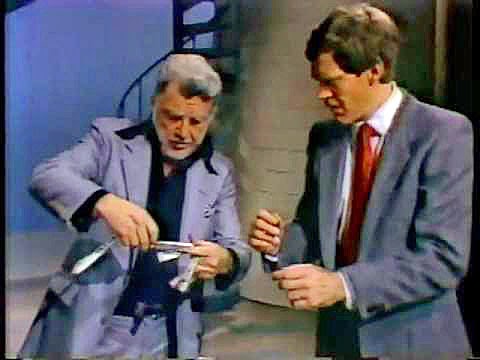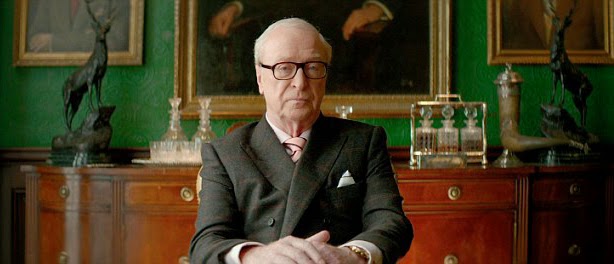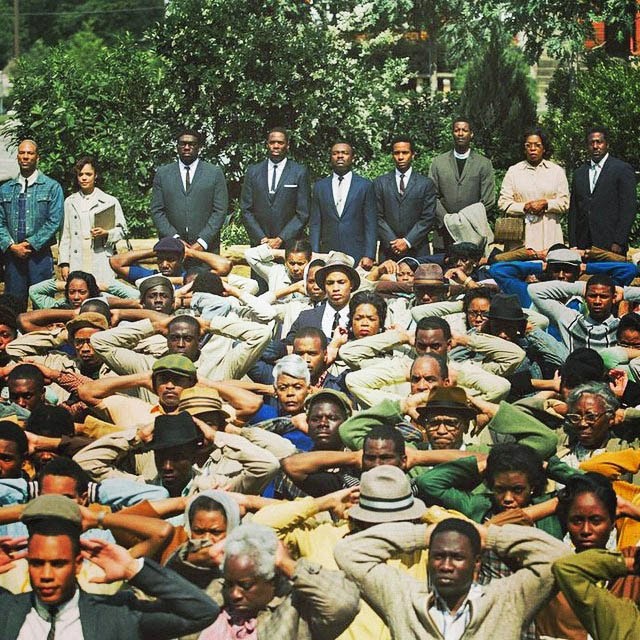Return With Us Now To TV Westerns: ‘LASH OF THE WEST’
February 21, 2015
By Steve Crum
Lash LaRue (aka Al “Lash” LaRue) was a top B-western movie star of the 1940’s and ’50s, specializing in his use of the bullwhip. (He reportedly taught Harrison Ford how to use it for the Indiana Jones movies.)
He was the man in black outfit, riding a black horse. AND he had a great sidekick, Al “Fuzzy” St. John.
 His TV “career” is hardly worth mentioning since his 15-minute Lash of the West ran a mere four months on ABC. (The show consisted of him introducing clips from his old movies.) Lash is pictured above in his heyday, and as a guest on an early David Letterman show.
His TV “career” is hardly worth mentioning since his 15-minute Lash of the West ran a mere four months on ABC. (The show consisted of him introducing clips from his old movies.) Lash is pictured above in his heyday, and as a guest on an early David Letterman show. “The Humphrey Bogart of Westerns” died May 24, 1994 at 78.
Return With Us Now To TV Westerns: ‘SKY KING’
February 21, 2015
Kirby Grant, who portrayed the title heroic character in TV’s Sky King from 1951-52, did not age that much–which is apparent in these photos taken in 1951 and 1984.
Grant tragically died in a car accident on Oct. 30, 1985, near Cape Canaveral. He was on his way to observe the Space Shuttle Challenger liftoff.
Return With Us Now To TV Westerns: ‘THE CISCO KID’
February 21, 2015
Was The Cisco Kid a friend of yours like he was mine? One of the earliest TV shows filmed in color, The Cisco Kid [1950-56] starred Duncan Renaldo and Leo Carillo. (It is still rerun today.)
 Since Carillo, who died in 1961, was elderly when he portrayed Pancho, I’ve included his early portrait. Carillo was an original California aristocrat who has a state park named after him.
Since Carillo, who died in 1961, was elderly when he portrayed Pancho, I’ve included his early portrait. Carillo was an original California aristocrat who has a state park named after him. The correct Castilian pronunciation of his last name is Cay-reel-yo.
Excessive violence kills Bond-spoof ‘Kingsman’
February 13, 2015
The comic book-based Kingsman: The Secret Service tries so hard to spoof Bond films, but never quite succeeds. God knows serious money was loaded into it, from extensive digital effects to star power. But at best Kingsman only emulates Bond takeoffs that have preceded it over the last 50 years, making it a spoof of a spoof. Let me put it another way: Via the hind teat this movie sucketh.
Directed and co-written by Matthew Vaughn (Kick-Ass; X-Men: First Class), Kingsman: The Secret Service most closely echoes the Matt Helm series, an early James Bond spoof, which starred Dean Martin. There have been other take-offs on Bond flicks—from movies (Our Man Flint, Austin Powers) to TV (Get Smart). My guess is that since the Bond franchise is still alive and well after all these decades, why not give today’s young audience something old, which to them translates to something new: another Bond parody.
After all, how many 20 year-olds have seen even one of the four Matt Helm movies, a series that ran from 1966-69? Update that sub-genre with more sex and profanity, and add a heavy dose of digital effects to really enhance the violence. For Kingsman, fail to include any of the humor, wit, and suspense its predecessors contain.
Like the Bond setting, Kingsman is British based and centers on the exploits of licensed to kill agents protecting the Queen’s realm. The plus of the story is the focus on “Eggsy” Unwin (Taron Egerton), whose secret service father was killed years ago by enemy agent Gazelle (Sofia Boutella), who sports prosthetic legs resembling razor sharp swords. Shades of Bond’s Oddjob with that slice and dice hat. It turns out that Eggsy’s dad’s friend and fellow agent Harry Hart (Colin Firth) has waited 17 years until Eggsy is grown so he can basically recruit the young man to become a Kingsman, thus following in his father’s footsteps.
 Eggsy reluctantly agrees, and undergoes combat and survival training along with other young recruits. This is where Kingsman: The Secret Service is interesting and thoroughly original. Once trained and properly dressed for the part, thanks to Hart, Eggsy is off to avenge his father and save the world from a nefarious, lisping, hip-hop villain, Richmond Valentine (Samuel L. Jackson). (How appropriate this movie opens on Valentine’s Day weekend.) Valentine plans to control the world via cell phones and electronic implants.
Eggsy reluctantly agrees, and undergoes combat and survival training along with other young recruits. This is where Kingsman: The Secret Service is interesting and thoroughly original. Once trained and properly dressed for the part, thanks to Hart, Eggsy is off to avenge his father and save the world from a nefarious, lisping, hip-hop villain, Richmond Valentine (Samuel L. Jackson). (How appropriate this movie opens on Valentine’s Day weekend.) Valentine plans to control the world via cell phones and electronic implants.The second half of the movie becomes a loud, f-bombing cliché of excessive violence. There is a near endless, disgusting mass murder sequence occurring inside a church that is over-the-top gross. Don’t we get enough of decapitations and shootings on the evening news? Despite the violent sequences (that go on too long) featuring mass killings and heads exploding, there is not much blood spilled…even when one guy is literally sliced in half. Accept this as an observation, I am not a fan of bloodletting.
 Another original touch is the naming of secret service agents, borrowing from the legendary King Arthur’s knights. Michael Caine plays home-based leader Arthur; Colin Firth is Galahad; Mark Strong’s Merlin trains the candidates; and Eggsy’s father was Lancelot.
Another original touch is the naming of secret service agents, borrowing from the legendary King Arthur’s knights. Michael Caine plays home-based leader Arthur; Colin Firth is Galahad; Mark Strong’s Merlin trains the candidates; and Eggsy’s father was Lancelot. Clocking in at 129 minutes, Kingsman: The Secret Service seems even longer.
——————————
Grade on A-F Scale: C
Despite glitches, ‘Selma’ is powerful filmmaking
January 9, 2015
Selma is a powerful dramatization of events that occurred between white supremacists and voting rights African-Americans led by Dr. Martin Luther King Jr., among others, in 1965. Recreations of brutalities perpetrated by Selma, Alabama police and many of its citizens upon unarmed civil rights marchers and demonstrators are unsettling and brutally graphic.
 In the process of chronicling those transitional, too often grim days following The Civil Rights Act of 1964, director Ava DuVernay and screenwriter Paul Webb have Hollywoodized the story to the extent of depicting President Lyndon Johnson as an obstructionist to the African-American cause. Nonetheless, Selma is compelling cinema. Opening with King’s 1964 acceptance of the Nobel Peace Prize in Oslo, a tragic event in Birmingham, Alabama is then shown: the murder of four youngsters in a Sunday morning church bombing. (That terrorist act actually occurred in 1963.)
In the process of chronicling those transitional, too often grim days following The Civil Rights Act of 1964, director Ava DuVernay and screenwriter Paul Webb have Hollywoodized the story to the extent of depicting President Lyndon Johnson as an obstructionist to the African-American cause. Nonetheless, Selma is compelling cinema. Opening with King’s 1964 acceptance of the Nobel Peace Prize in Oslo, a tragic event in Birmingham, Alabama is then shown: the murder of four youngsters in a Sunday morning church bombing. (That terrorist act actually occurred in 1963.)  Cut then to Annie Lee Cooper (Oprah Winfrey) as she attempts again to register to vote in the Selma courthouse. Once again, she is thwarted by ridiculous regulations like having to recite each of Alabama’s 67 county judges. Faced with a requirement not required for the white population, she leaves defeated and unable to vote. Jump to Dr. King (David Oyelowo in a superb performance) meeting with President John (Tom Wilkinson) at the White House. “We want the right to vote,” King says to LBJ’s noncommittal ears. “This administration will just have to set that (voting rights) aside,” Johnson retorts. According to the film, LBJ later meets with FBI Director J. Edgar Hooever to nullify any voting agitation stirred by King and his followers. Wire tapping King in his bedroom is Hoover’s method of choice.
Cut then to Annie Lee Cooper (Oprah Winfrey) as she attempts again to register to vote in the Selma courthouse. Once again, she is thwarted by ridiculous regulations like having to recite each of Alabama’s 67 county judges. Faced with a requirement not required for the white population, she leaves defeated and unable to vote. Jump to Dr. King (David Oyelowo in a superb performance) meeting with President John (Tom Wilkinson) at the White House. “We want the right to vote,” King says to LBJ’s noncommittal ears. “This administration will just have to set that (voting rights) aside,” Johnson retorts. According to the film, LBJ later meets with FBI Director J. Edgar Hooever to nullify any voting agitation stirred by King and his followers. Wire tapping King in his bedroom is Hoover’s method of choice.
As Alabama’s Governor George Wallace (Tim Roth) consults with his henchmen, as well as President Johnson, about how to physically deal with Dr. King, meticulously planned, peaceful protests resume. The culmination of that event was the march from Selma to Montgomery, Alabama. incidentally, the movie was filmed in various George and Alabama locations, including the Edmund Pettus Bridge, where the Bloody Sunday assault by Selma police actually occurred.
While Selma serves as a heartfelt tribute to the memory of Dr. King, it also documents events that shaped our nation.
Technically, DuVernay uses, maybe overuses, shadows in many closeups of King. Since Oyelowo is not an exact match for King, maybe this was a wise choice.
Technically, DuVernay uses, maybe overuses, shadows in many closeups of King. Since Oyelowo is not an exact match for King, maybe this was a wise choice.
Pluses extend to Carmen Ejogo as Coretta Scott King and Bradford Young’s cinematography.

However, the minuses center on a couple of miscasts and a few historical flaws. Why Tom Wilkinson and Tim Roth were cast as Southerners is a puzzlement, particularly since neither physically resemble their characters (LBJ and George Wallace). Neither do they exude the necessary fervor nor speak with believable accents.
Frankly, knowing they are both British got in my way. OK, so Oyelowo is also British, but he is a virtual unknown. Of course his celebrity is now forever changed.
 Throughout the film, I was shocked to see LBJ portrayed as such a racist obstructionist to the Civil Rights Movement. Later I commented to a screening rep that I had no idea Johnson used the n-word when he was president (referencing King and his followers), that he pushed Hoover into wiretapping King, and that he repeatedly refused to compromise in regard to the Voting Rights Act.
Throughout the film, I was shocked to see LBJ portrayed as such a racist obstructionist to the Civil Rights Movement. Later I commented to a screening rep that I had no idea Johnson used the n-word when he was president (referencing King and his followers), that he pushed Hoover into wiretapping King, and that he repeatedly refused to compromise in regard to the Voting Rights Act. As it turns out, my suspicions were not entirely warranted since there are White House-taped conversations in which Johnson used such racist language. I was shocked to discover (and hear) such after seeing Selma. In order to paint a story picture of good versus evil, even President Johnson had to appear as one of the bad guys.
Referring to the relationship between King and Johnson, Mark Updegrove, Director of the LBJ Presidential Library, recently said, “They were very much supportive of each other.” Rep. John Lewis, portrayed in Selma by Stephan James, agrees with Updegrove, but dismisses the criticism as “unfair.” Both he and DuVernay consider the Johnson depiction as nothing more than poetic license for the sake of an even better story.
“I wasn’t interested in making a white-savior movie,” DuVernay boldly asserts. In other words, the devil with Lyndon Johnson.
“I wasn’t interested in making a white-savior movie,” DuVernay boldly asserts. In other words, the devil with Lyndon Johnson.
With that skewed objective, she should have renamed the movie King.
—————————
GRADE on A to F Scale: A-













